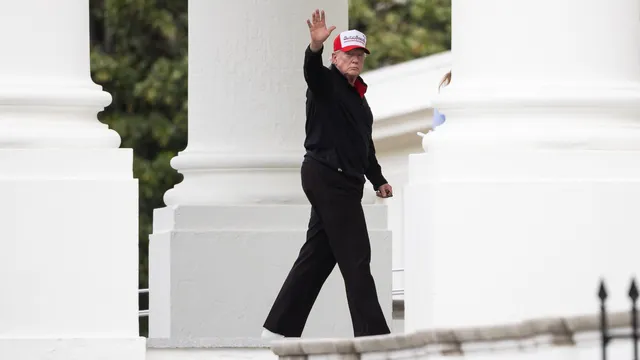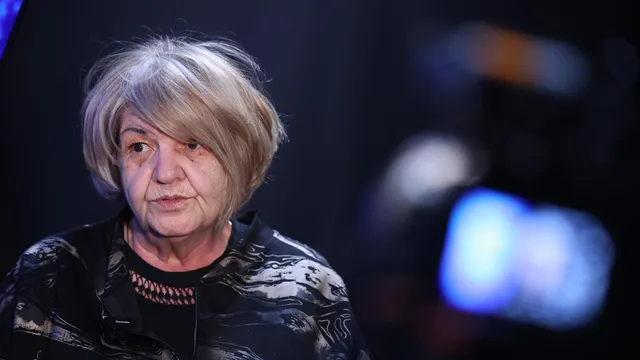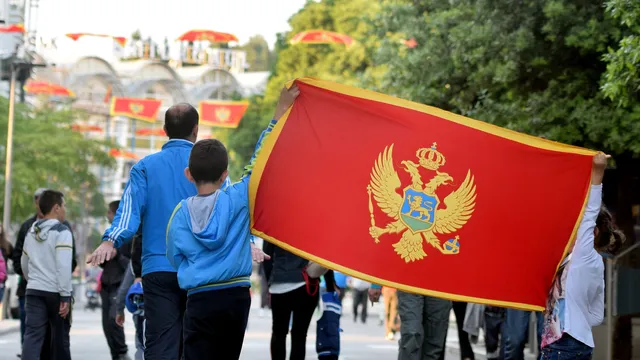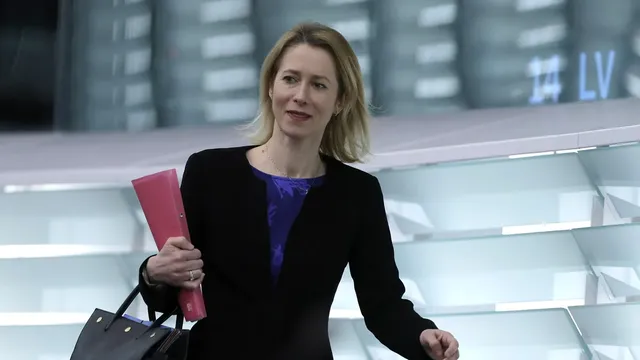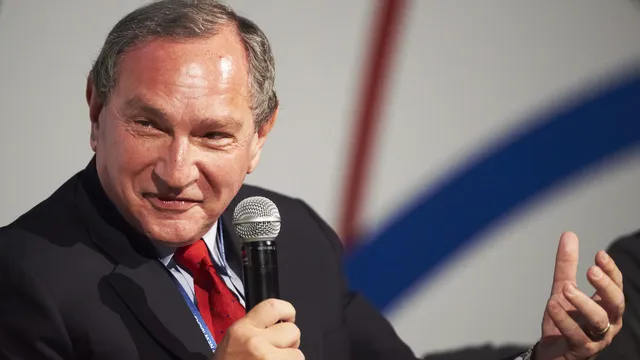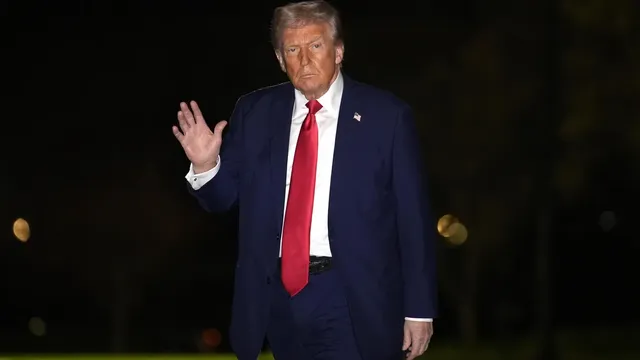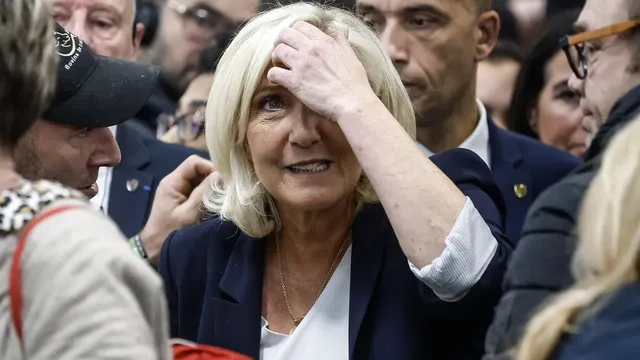With Donald Trump back in the White House, you never know what you're going to get. Will he scold a foreign leader? Will he shake up world markets? Will he retaliate against his enemies?
Behind the chaos of his first 100 days as president, however, there is one constant - Trump is pushing US presidential power to near-imperial limits.
"I think the second term is just more powerful," the 78-year-old Republican said at a recent event. "They do it when I say to do it, they do it, don't they?" he exclaimed.
Trump has been driven by a sense of discontent left over from his disorganised first term, which ended with the infamous riots at the US Capitol in 2021 after his election defeat by Joe Biden.
And while Trump released hundreds of these attackers from prison on his first day back in office, he shows no mercy when it comes to consolidating power in the White House.
"Trump 2.0 is much more authoritarian-minded and authoritarian in his actions than Trump 1.0," said political historian Matt Dalek of George Washington University.
Trump has also reinforced the sense of a never-ending reality show in which he is the star, as he almost daily signs executive orders and answers questions from reporters in the Oval Office.
This series of executive orders has sparked an unprecedented attack on the cornerstones of American democracy and the world order.
"Certainly we have not seen such a sustained attack on the removal of constitutional guarantees in modern times," Dahl added.
Brazen
Controversially aided by Elon Musk, the world's richest man, Trump has launched a campaign to destroy the federal government, which he considers part of the liberal "deep state."
He invokes a centuries-old act of war to deport migrants to a mega-prison in El Salvador. At the same time, he warns that US citizens could be next.
He confronted judges and imposed a series of criminal settlements on law firms involved in previous criminal or civil cases against him.
He has cracked down on the media, which he still calls the "enemy of the people," and restricted access to news agencies that cover him at the White House.
He also began an ideological purge, cutting diversity programs, targeting universities and even putting himself in charge of a prestigious arts center.
The US Congress, which is supposed to exercise supreme control over the public purse, has been left out. Republicans supported the power grab, while overwhelmed Democrats tried to fight back.
"We're all afraid," Republican Senator Lisa Murkowski said recently.
"The president seems indifferent to official - even constitutional - checks on his power," said Barbara Trish, a political science professor at Grinnell College.
On the foreign stage, Trump has made territorial claims to Greenland, Panama and Canada - asserting a sphere of influence that echoes Russian President Vladimir Putin's expansionist bent.
Meanwhile, the American head of state is backed by a court of true believers. Aides with often extreme views, such as Health Secretary Robert Kennedy, a vaccine skeptic, take turns praising him at cabinet meetings.
"Compared to his first term, the president has completely surrounded himself with aides who not only facilitate but in some cases catalyze his brazen power moves," Trish added.
Instinctive
But Trump's return has highlighted some familiar themes.
He's ending his first three months with approval ratings that are well below those of all other presidents since World War II except himself in his first term, according to Gallup.
And there are signs of the same unstable leader the world saw between 2017 and 2021.
Trump's tumultuous televised Oval Office meltdown with Ukrainian President Volodymyr Zelensky - prompted by Vice President J.D. Vance - deeply alarmed allies who were already alarmed by his pivot to Russia.
He then introduced sweeping global tariffs, only to reverse many of them after world markets proved the only real brake on his power.
Asked how he arrived at one of his decisions on tariffs, Trump replied, "Just instinctive."
The question now is whether the US President, who at one point called himself 'King' in his Truth Social platform, will be prepared to give up power.
Trump recently said that when he repeatedly referred to a third term being unconstitutional, he was "not kidding." | BGNES, AFP

 Breaking news
Breaking news
 Europe
Europe
 Bulgaria
Bulgaria
